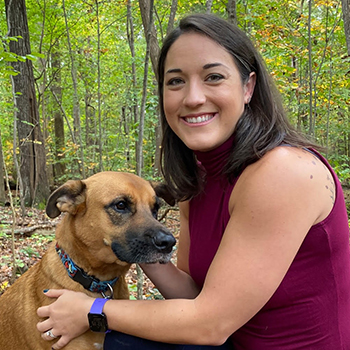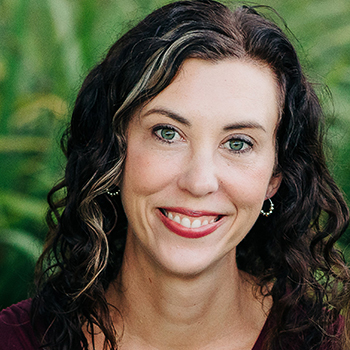NOW AVAILABLE
Appropriate nutrition can have a profound effect on health outcomes in cats of every lifestage. In this webinar series, participants will learn how to perform a nutritional assessment, review the unique nutritional considerations for each lifestage, and understand feline feeding behavior. By integrating this knowledge, participants will become better equipped to choose optimal diets for their patients and to communicate their recommendation with confidence.
Sessions

Feeding Her Majesty: Basics of Queen and Kitten Nutrition
Lindsey E. Bullen, DVM, DACVIM (Nutrition)
This course covers the basics of both queen and neonatal kitten nutrition. Discussions will be focused on their unique nutritional needs, feeding behaviors, and optimal feeding practices.
Learning Objectives
- Be able to choose an appropriate diet and feeding plan for each stage of reproduction/lactation
- To understand normal neonatal feeding behaviors/patterns
- To be able to choose an optimal diet/milk replacer for orphaned neonatal kittens
- To be able to effectively communicate and implement weaning in kittens

Happy Cat, Happy Home: Nutritional Idiosyncrasies & Diets for Common Diseases
Lindsey E. Bullen, DVM, DACVIM (Nutrition)
This course covers the basics of adult feline nutrition. Discussions will be focused on their unique nutritional idiosyncrasies, feeding behaviors, and optimal diet selection.
Learning Objectives
- To know at least 3-5 unique nutritional idiosyncrasies of the feline pet
- To be able to choose an optimal diet for a specific pet/patient
- To be able to effectively communicate nutritional recommendations and information to caregivers

Adult Cat Nutrition: Assessment and Developing Plans
Angela Rollins, DVM, PhD, DACVIM (Nutrition)
Developing a diet plan for adult cats begins with a nutritional assessment. Nutritional assessments incorporate physiologic factors, physical examination findings, and a detailed diet history to make the optimal plan for a patient. Dietary plans should be as specific as possible and provide caregivers with a recommended diet, amounts to feed, and methods for feeding. Many chronic conditions such as obesity and dental disease can be prevented or improved with proper diet and should be considered in otherwise healthy cat feeding programs.
Learning Objectives
- Be able to perform a nutritional assessment in patients by considering physiologic status and examination findings
- Develop effective diet plans that consider both individual and household factors
- Become familiar with technology and tools that may provide enrichment through feeding

Senior Cats: The Often-forgotten Life Stage for Nutrition
Sherry Sanderson, BS, DVM, PhD, DACVIM (SAIM), DACVIM (Nutrition)
The age at which a cat becomes a senior is not universally agreed upon, and the terminology used to describe cats as they ages is also quite variable. However, from a nutritional standpoint, it is better to subdivide senior cats into more than one life stage. For example, mature cats, which are often thought of as cats in the age range of 7 years up to 12 years, are often at risk of becoming overweight or obese. In contrast, as cats continue to age beyond this range, they often have difficulty keeping weight on. Changes also occur in cats’ ability to digest and absorb certain nutrients as they age. Although there are commercial diets available for cats as they age, currently there are no established nutrient profiles for a senior life stage in cats as there are for growth, reproduction, and adult maintenance. As a result, there is a tremendous amount of variability in the nutrient composition of diets labeled for older cats. This lecture will discuss changes that occur in cats as they age, and how nutrition can be used to address these changes and help promote healthy aging in cats.
Learning Objectives
- Understand that the current lack of established nutrient profiles for senior cats does not mean that their nutritional requirements are the same as those for younger adult cats
- Understand functional changes that occur in senior cats as they age that can be addressed with nutrition
- Understand how nutrition can play a role in many age-related problems that can occur as cats age
RACE Credits
This program 20-909468 is approved by the AAVSB RACE to offer a total of 4.00 CE Credits (4.00 max) being available to any one veterinarian: and/or 4.00 Veterinary Technician CE Credits (4.00 max). This RACE approval is for the subject matter categorie(s) of: Medical using the delivery method(s) of: Non-Interactive Distance. This approval is valid in jurisdictions which recognize AAVSB RACE; however, participants are responsible for ascertaining each board’s CE requirements.
